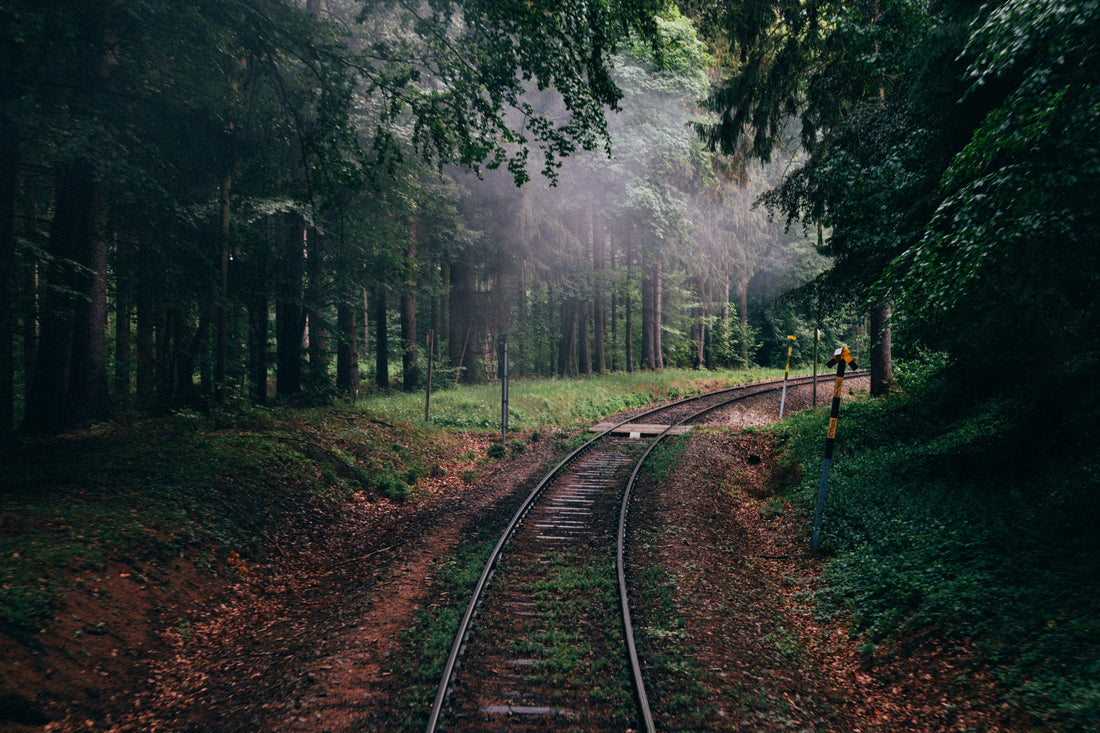This is a fantastic interview by The Books on the Lane (a lovely bookstore in West Yorkshire) with our author Ezra Miles from their blog 'Writing about Reading.' The Signalman is an impressive debut and was published in December 2023 with a book launch at Burley Fisher Books in Hackney on Wednesday March 20, 2024. Yesterday was World Poetry Day so please enjoy!
Which poets/writers, if any, are your major influences and why?
The major poetic influences that come to mind would be Philip Larkin, RS Thomas, John Clare, Raymond Carver, Denise Levertov, Mary Oliver, Jack Clemo, Wendell Berry. Of more contemporary writing, Seán Hewitt and Joseph Massey do things with language that excite my soul. If my poems have any of the music and intensity that those mentioned possess then it has been a good day’s work. It’s hard to write pithily about why I like each of those poets, but the unifying quality I can see in their work is a deep and abiding love for the world, especially the natural, and an unguardedness for the full gamut of human emotion it contains. Sorrow, rage, beauty, joy, love and all the rest. I love poetry that doesn’t try to impress or bamboozle but simply exposes truth to the fresh air.
Why do you write poetry?
I write poetry out of habit, reflex, instinct, need, and to discover what I actually think. I do it because a world with more poems is more the one I want to live in. There is something endlessly experimental and novel about poems, even bad ones. I never know where the poem is going to go, and that process is always thrilling. They continue to excite me in a way that no other artform can.
How has your job as a signalman affected your writing, if at all?
All our experiences are fodder for what we write about. There are poems in the collection which are about signalling, or being in a signal box, but the more significant impact was what the job gave me to work with as a writer. The time in the box was an enforced solitude: no one to talk to, little work to do (there were only two trains an hour), and living in a new place where I didn’t have a network or community. The rural environment I was spending all my time in was also significant. Watching the seasons change, the insect life, the animals, the light, this new place and its isolation all bled into the poems.
Do you write poetry quickly or do you make many adjustments? Could you tell us a little about your writing process?
Some poems come so quickly and fully formed that you feel less the poet and more like a court stenographer, recording as quickly as possible what’s happening. That isn’t the case for every poem though. Poetry is a condensed form: of thought, writing, and speech. The strength of a poem lies to some extent in its brevity. The short life of a poem is what gives it the intensity, and because of this editing and revision is essential. That’s where the real craft of the poem comes from. The best poems have been worked hard at, and the easiness they read with is often studied construction and artifice. All that requires a dispassionate look at the writing in front of you and engagement with what the poem is actually saying, rather than what you imagined it to say.
I try not to have a set method for writing poems: I want to leave room for being surprised along the way. I carry a pen and paper as for some reason ideas have a different feel when they’re written by hand). The point where I transcribe a set of notes onto the computer is always exciting. I like printing the poems out and working back over them in pen. I also find I end up editing multiple poems at a time, a bit like a painter working a number of canvasses. I can’t tell you if this makes for better or worse poems, but it does resonate with my perspective of a ‘unified poetic voice’. A poet’s works will be interconnected and overlapping naturally, and I like it when that happens.
Much of your work in The Signalman takes the urban environment and the seemingly transient and petty incidents of the lives (human and from the natural world) lived within it, as subject matter. Is this deliberate or subliminal?
This is deliberate. Art can make the mundane profound and the profound mundane. We live in a world which has in equal measures denigrated and overstated the natural world and the ordinary human life. Hopefully poetry balances the books in both directions.
Christianity is central to your work and personally I so admire the way in which you can express your faith within your work. Do you have any hopes for a response to your beliefs among any possible readership?
In the film, Chariots of Fire, the character of Eric Liddell, the son of Scottish missionaries, explains his love of running like this: ‘God made me fast. When I run, I feel His pleasure. To give it up would be to hold Him in contempt’. I can relate to that. I write poems because God is a poet, and He loves poems. When I write them I’m closer to Him. Poetry brings Him pleasure, and I share in His delight when I write. Put another way: I don’t think good art can be made from a propagandistic position. I tried to write the poems truthfully: I am a Christian, my relationship and devotion to God colours every single thing I do or say. My hope is that the book will be enjoyed by someone with no faith, and I don’t think it’s heavy handed or so lacking in nuance that this isn’t a reasonable aspiration.
In your own opinion, what constitutes a ‘good’ poem, that stands up, and what advice would you give to any aspiring poets out there?
A good poem is one that engages you. William Carlos Williams called them ‘idea machines’. It should, by innovation with language, take the reader somewhere beyond themselves. A good poem should feel like something you’ve always wanted to express but never quite found the words to say until just then, reading it. It should make you want to read it again and again! It should open something in you: the best poems are a doorway into a room inside you that you’ve never visited before.
Read widely from people you like and dislike, read good poems and bad poems, in different languages and from different times, and write often, without embarrassment or shame. Write without feeling ‘how dare I?’ Dare! Don’t try to be too stylish (that comes, if needed), and accept that many of the things you write will be cliché, clunky, juvenile or just plain rubbish. Accept that this is a part of the process and enjoy it. Then edit with a seriousness that surprises yourself. Keep doing this until you strike gold, then keep on digging.
The Signalman was released December 2023, go and grab your copy now!


